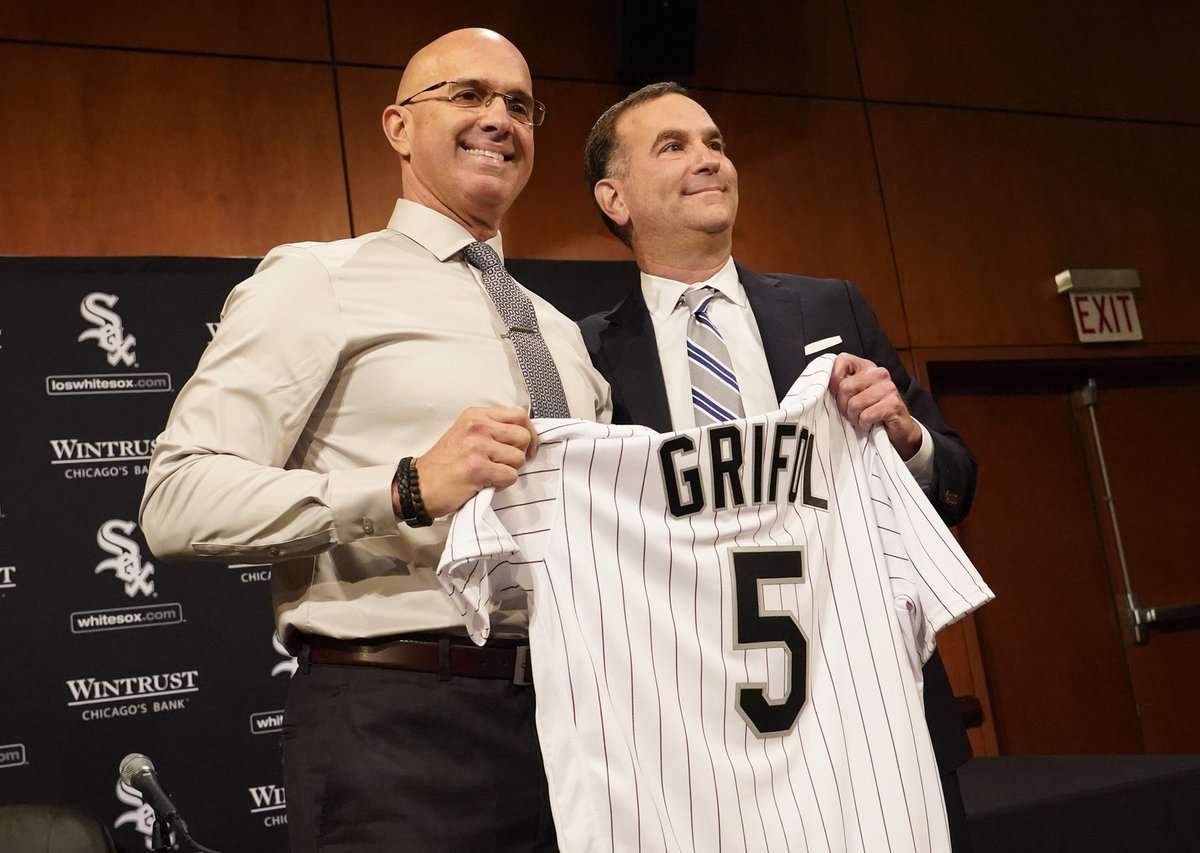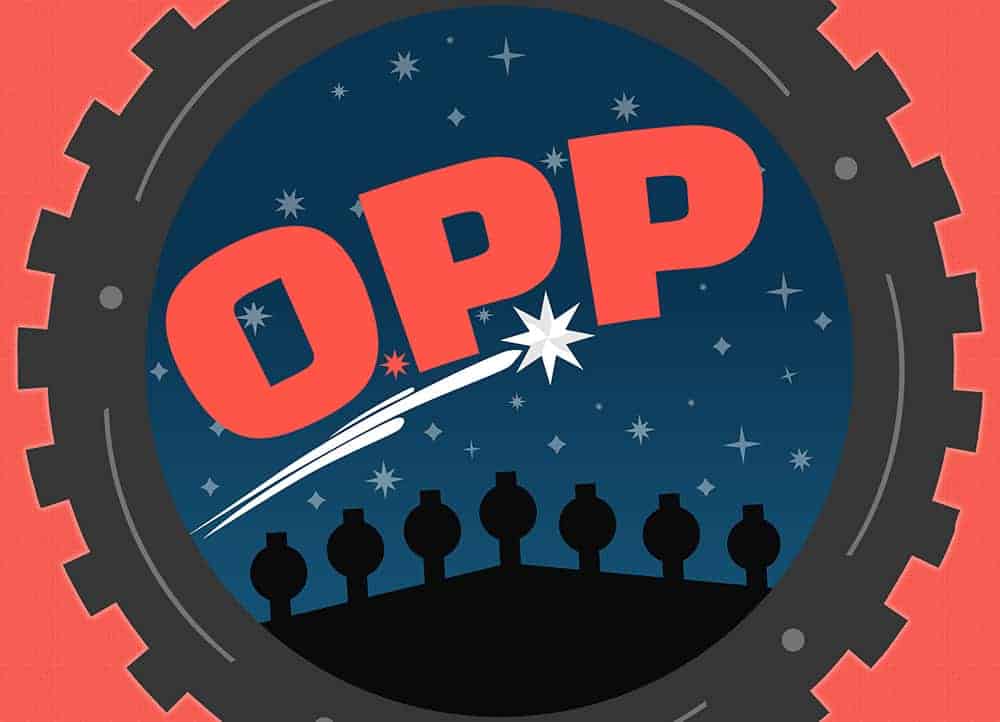Today was supposed to be a travel day for the World Series before a rainout pushed the middle three games back a day, which is why the last three teams to fill their managerial vacancies all held their introductory media conferences this morning.
Before the White Sox formally announced Pedro Grifol as their new manager, the Marlins and Royals did the same with Skip Schumaker and Matt Quatraro, respectively. I don't track much Marlins media on Twitter, but the Royals voices I follow relayed favorable first impressions of their new manager.
When Grifol's session wrapped up nearly an hour later, I also had the urge to say that he made a fine first impression, but it felt trite. These press conferences are the spring training of a manager's career. Today marks the start of the brief window where Grifol will be part of the White Sox, yet independent of all the angst the franchise foments. At some point, something will be Grifol's grif-fault, but today is not that day.
Then I remembered that the White Sox failed to afford their fans that smallest of luxuries with their previous two managerial hires. From the introductory graphic with the wrong signature to Rick Hahn's reliance on the passive voice, everything about Tony La Russa's Zoom introduction suggested that few in the organization thought he was the right man for the job. Before him, the White Sox introduced Rick Renteria on the defensive -- not because Renteria was unqualified, but because they'd promoted the bench coach from a failing enterprise without a process.
With this history, a great first impression actually counts as newsworthy, because the White Sox actually allowed their new manager to make one.
Hahn was visibly and audibly thrilled by Grifol's presence, and used the word "gushing" a few times when he became aware of his effusiveness. He said the White Sox's initial list of managerial candidates approached 30 names. They ended up interviewing eight candidates from seven different organizations (including the White Sox). "A few candidates" made it to a second interview with Hahn and Kenny Williams, followed with a final approval interview from Jerry Reinsdorf.
Hahn relished relaying details of the kind of process the White Sox failed to implement for their previous three managers, which would be like me telling Peak TV fans about a great little show I just discovered called "The Wire."
Except I have no intent to ever watch "The Wire," whereas we can grant that Hahn wanted to have this kind of moment the last time around before Reinsdorf intervened. Knowing this, it was hard to not take Hahn's praise of Grifol as a passive-aggressive roast of the La Russa era. Some quotes:
"We're very proud of the process that led us to Pedro."
"With the hiring of Pedro, [we] feel like we are taking a major step to putting ourselves back on track on the trajectory that we all felt we were on over the previous seasons prior to last season's disappointment."
"A modern baseball mind who is seeking to build a cohesive and inclusive clubhouse environment and one where the attention to detail and the accountability will be priorities."
Hahn is not immune to such barbs himself, and he had to open himself up to shots when he said the White Sox had been "a little insular," and that "sometimes it's good to get a little bit of a reality check from the outside," but at least he acknowledged the White Sox hadn't shown any inclination for getting such perspectives with the last few turnovers, and wanted to use this one to make such interest clear.
Grifol offered some of that perspective by tucking criticism into a candy-coated shell. When asked about what he saw in the White Sox from other side of the field, he said, "It was a really difficult club to prepare for because if the energy was high, they can beat anybody in the game. If the energy wasn't, we were able to have some success against them."
Grifol kept most of his strengths and suggestions at surface level -- energy, communication, fluency in Spanish and analytics -- Hahn piggybacked on Grifol saying "We're going to be prepared to play" with another pointed criticism of the previous administration.
"We spent a lot of time with Pedro talking through improvements to our pregame planning, something that he was heavily involved in in the past, as well as how we prepare from an offensive standpoint to get the most out of the traits of the players on the roster," Hahn said. "How we go about our business in that area in particular I think you're going to see a lot different from what we had in the past."
It sounds like the coaching staff will represent such changes. Hahn said that pitching coach Ethan Katz and bullpen coach Curt Hasler will return, but he also confirmed the reports that Charlie Montoyo has joined the White Sox as a bench coach, a position he'd previously held with the Tampa Bay Rays.
It doesn't sound like Grifol and Montoyo had any previous ties. Grifol said they'd spoken a few times and there's a whole lot of respect involved, but Hahn said it was a "collaborative" decision prompted by the demand for Montoyo's services. As long as Grifol was allowed to shoot down the idea then, and is allowed to revisit the pairing later, it shouldn't be a problem.
New faces should occupy the staff spots that weren't confirmed, as Hahn said a majority of spots will be filled from outside the organization. Mike Tosar, who worked with Grifol in Kansas City and helped Jorge Soler and Salvador Perez unleash their power, is the favorite as the new hitting coach, both from James Fegan and the KC side. It also sounds like the White Sox will make further changes to their strength and conditioning unit -- Grifol nearly announced something along those lines, before consulting with Hahn in a sidebar where Hahn said it was premature -- which squares up with a rumor I've heard.
As for Grifol himself, I'm reluctant to make too much of initial statements, because what he stressed are typically what every new manager stresses -- effort, energy, fundamentals, communication, information, etc. Starting with Ventura, every manager the White Sox have hired has been billed as more detail-oriented than the guy who came before. Grifol is renowned for his communication skills, but communication is always a little easier when somebody else is ultimately responsible for the content of the message. The buck stops with Grifol now, so we'll see what happens.
What stood out to me is what's stood about White Sox managers this century: You can sense the difference when the manager actively sought the job. Guillen and Renteria wanted to manage the White Sox. Ventura and La Russa had to be coaxed into it, and that deficit in desire created a cloud that always returned when times got tough.
There should be no doubt about Grifol's mission. He shared a story from 2011, when he realized that his heart was back on the dugout, even though the farm director job he held at the time paid better, and provided more reliable hours. He told his wife and daughters that in order to pursue a path toward managing, they'd have to downsize their house, and that he'd have to manage in winter ball to make ends meet.
The way Grifol tells it, they wouldn't allow him another option.
"They snapped right back at me and said, 'How in the world can you tell us to chase our dreams if you're not chasing yours?'" Grifol said, taking a moment before looking at his family. "I can't thank you enough for that."
Desire for one of baseball's most coveted post-playing positions should be a given. Great first impressions at an introductory media conference should be a given. A process to find the best guy should be a given. When it comes to the White Sox and what counts as their processes, there are no such guarantees, but the excitement that radiated in the room and through the live streams should show them the reward of conducting themselves like professionals.





